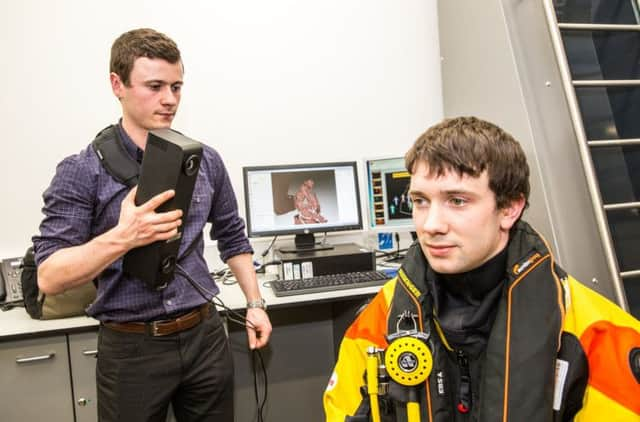Offshore worker lifestyle ‘fuels weight gain’


Research by scientists at Robert Gordon University in Aberdeen has shown that offshore workers are on average 19 per cent heavier than they were in 1985, with a significant increase in neck, chest, hip, waist and wrist sizes.
Workers now weigh 90.5kg (14stone 3lbs) on average and are roughly an inch taller than they were three decades ago.
Advertisement
Hide AdAdvertisement
Hide AdThe research, conducted with the support of Oil & Gas UK, will be used to inform companies involved in the manufacture of clothing and equipment for offshore workers.
But the results also highlighted concerns over the “culture and lifestyle” of offshore work, with a need for “vigilance” over the wellbeing of staff.
Dr Arthur Stewart, reader at the Institute of Wellbeing and Public Health, said the increased ethnic diversity of the workforce and an apparent popularity of strength training among staff had also contributed to the body changes.
However, he said that food was also compensating for a lack of “other pleasures” or offshore.
Mr Stewart said: “It would certainly appear to be a culture and a lifestyle and, if you impose it on people long enough, they are susceptible to an increase in weight.
“Some of that might be because they are muscular, but some of that may be because they are overeating relative to their energy expenditure.
“The culture goes a little bit deeper. They are in an environment where they are denied many of their other pleasures in life and they are in a remote place.
“There is highly palatable and energy-dense food available in unlimited quantities. It is their choice and they see it as their remuneration.
Advertisement
Hide AdAdvertisement
Hide Ad“You may say if you have worked very hard, and there are limited other recreational opportunities in the North Sea, then you can fully understand why people may choose to eat more than they need.”
Findings show that waist sizes have increased by an average of 17 per cent, neck by 14 per cent, chest and hips by 12 per cent and wrists by 11 per cent.
Mr Stewart said that changes to shift patterns – where people are offshore for longer spells – could exacerbate unhealthy habits.
He added: “The health of our offshore workforce is something we would like to take very seriously. There is a desire to understand the effects that is offshore environment is having on their health.”
Robert Paterson, health and safety director of Oil & Gas UK, said: “A number of the catering contractors now provide healthy options for offshore workers.
“But it is very much down to companies how this is managed.”
The Civil Aviation Authority recently introduced new rules which require workers of extra broad shoulder width – of 22inchs or more – to sit next to exits on offshore helicopters. The new rules were introduced following the fatal Super Puma crash off Sumburgh in August 2013.
Tommy Campbell, regional organiser for Unite, said of the new research: “We would always welcome any measure in any workforce – not just the offshore workforce – that improves the health of workers. There are of course people who do keep a healthy lifestyle while offshore and do weight lifting and other activities.
Advertisement
Hide AdAdvertisement
Hide Ad“We would of course be completely opposed to anyone losing their job because of their size.”
FOLLOW US
SCOTSMAN TABLET AND MOBILE APPS